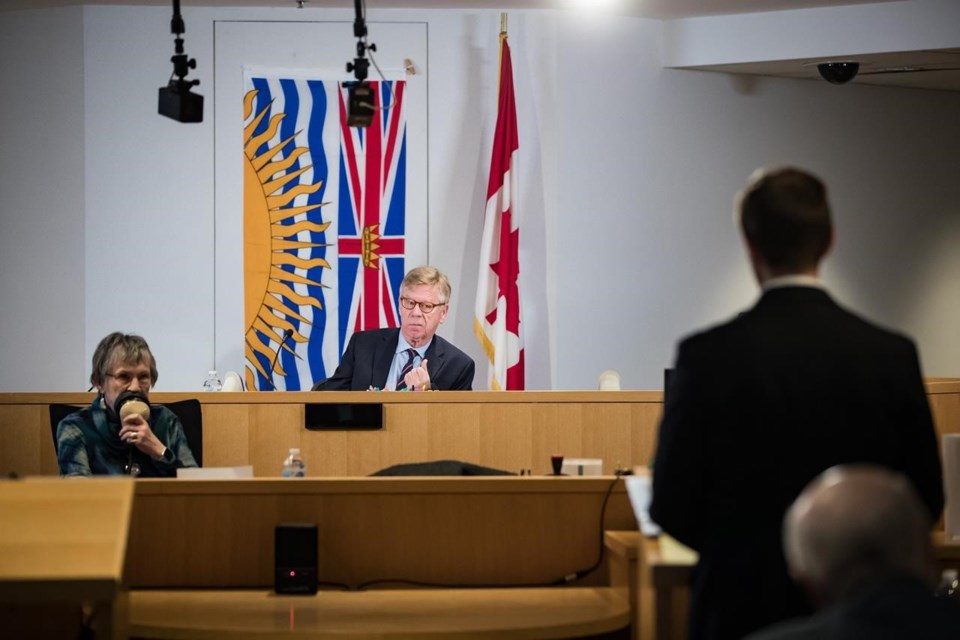VANCOUVER — The president of the British Columbia Lottery Corp. says the former Liberal government called for tighter controls on cash at casinos but didn't order the Crown corporation to impose buy-in limits on gamblers as part of its overall anti-money laundering strategy.
Jim Lightbody said it wasn't until 2018, following a change in government and in connection with a money laundering investigation report by former deputy RCMP commissioner Peter German, that the Crown corporation placed restrictions on cash buy-ins at casinos of $10,000 or more.
"It was never directly stated to me that's what they wanted," Lightbody said Friday, concluding two days of testimony at a public inquiry into money laundering.
"I never heard that we should be following the prescriptive approach until Dr. German's first recommendation and that was the first time we moved to the prescriptive approach."
The inquiry has heard testimony that up until at least 2015, people arrived at B.C. casinos with bags containing hundreds of thousands of dollars in $20 bills.
German's report concluded organized crime groups used B.C. casinos to launder illegal cash obtained through drug sales and other illicit activities.
Lightbody, who is on medical leave from his duties as lottery corporation president, said the former B.C. Liberal government, including then-finance minister Mike de Jong, sent letters and held meetings with him where the importance of cash thresholds was discussed, but stopping large cash buy-ins at casinos was not ordered.
He said the government in its annual mandate letters to him continued to support the corporation's risk-based approach to anti-money laundering, which included investigating and monitoring suspicious people, requiring some gamblers to disclose their source of cash and banning others from casinos.
"It wasn't a tick-the-box, you've had two suspicious transactions, you're out,'' said Lightbody. "There wasn't a panacea to an anti-money laundering regime."
He said the pitfalls of applying a prescriptive approach to anti-money laundering is criminals will find a way around the measure.
"It has to be very very fluid and thoughtful and a risk-based approach," he said.
Lightbody testified Thursday that the lottery corporation stepped up requirements for some players to disclose the source of their cash after receiving a 2015 police report that said organized criminals were using casinos for money laundering.
He said that was the first time police told the corporation there was evidence of illegal cash linked to organized crime at casinos.
Last November, former gaming investigator Larry Vander Graaf, who is also a former RCMP officer, told the commission the lottery corporation did not move quickly enough to protect the integrity of gaming from organized crime more than a decade ago.
He said suspicious cash started to appear at casinos in 2007, and by 2010, loan sharks were circulating nearby parking lots with bags of money believed to be from proceeds of crime.
The province appointed B.C. Supreme Court Justice Austin Cullen in 2019 to lead the public inquiry into money laundering after three reports outlined how hundreds of millions of dollars in illegal cash affected the real estate, luxury vehicle and gaming sectors.
— By Dirk Meissner in Victoria
This report by The Canadian Press was first published Jan. 29, 2021.
The Canadian Press



